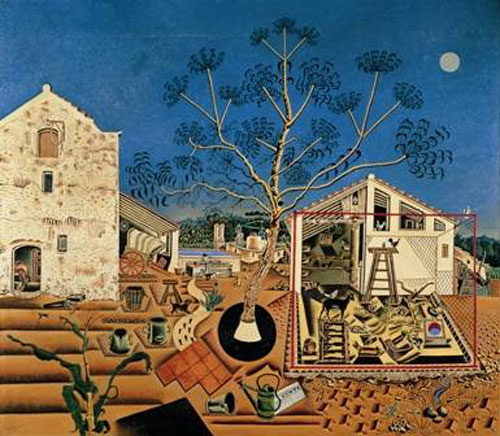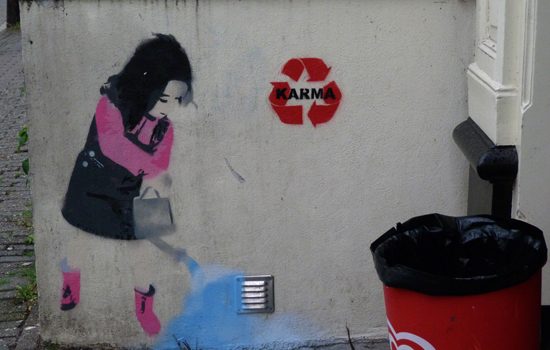Walking through the streets of Barcelona, sooner or later you´ll find some misleading signs printed in the (much) garbage of the city. You will read “Art is rubbish”, on a broken wardrobe door or on a shelf left out on the street, and maybe you´ll ask yourself, whether it is a quick idea of someone passing by or it relates specific content of an artwork, in spite of that, what does the author mean by that phrase? You won’t understand anything until you find other written sings on shelves, and more painted garbage bags in different parts of the city, then you will know that this is a specific project and wondering down the street, you will discover that the author is the Spanish artist Francisco de Pájaro (www.franciscodepajaro.net).

Pajaro was born in Zafra, province of Badajoz, in 1970. His career as a painter began as an office decorator when he was just a teenager. In 1994, he joined the School of Arts and Crafts in Merida, where he studied one and half years before leaving his studies and returning to his hometown, where he began devoting himself to painting by following a surrealist and cubist inspiration, taking as references Francis Bacon and Pablo Picasso. His first solo exhibition took place in the gallery of the Caja de Ahorros de Badajoz. When his colleague and partner died in a tragic accident, he decided to leave the company “Rotuletto”(dedicated to corporate and interior design) to devote himself to painting full time. He lived in London two years, making two solo exhibitions in separate spaces, and then moved to Barcelona, a city that – according to him – is full of encouragement for his work.
“Art is rubbish”, is a tribute to art that engages all his work, is a clear slogan that opens a vast and continuously debated topic in the contemporary art world. Undoubtedly, this is a strong critique to the institutionalization of art, that distances society from artistic works (turning art into something unreachable for ordinary people), relegating them to an elitist world, which makes people perceive art as auratic and unattainable, and where the so-called elite is no longer distinguished by their purchasing power, but by an alleged exclusive knowledge, which allows them to have access to understand and appreciate art. This concept assumes that vast background knowledge is required to have the aesthetic experience that contemporary works offer. Instead of that, Francisco de Pájaro reminds us that art is not an object itself, but a way of doing something, an action or gesture, it has much more to do with everyday life itself, and the power of appreciation of what surrounds us. It’s a positive message that encourages us to develop our vision and appreciate more beauty in all its absurd manifestations, including garbage.
 menschauser
menschauser
For this reason, if you are art lovers, we recommend you to find Barcelona accommodation and explore the city for a few days in search of the work of this artist.

 English
English Translated by: Hans
Translated by: Hans
